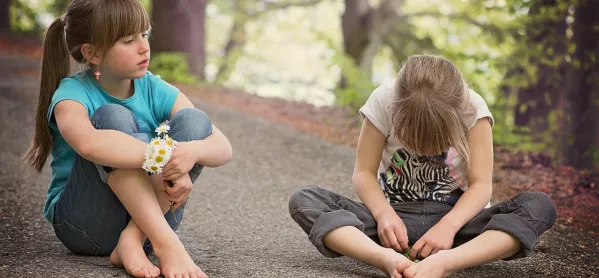Autistic girls are not getting the support they need to form friendships at school, according to a new study.
The research found that autistic girls reported more conflicts with friends than autistic boys, or non-autistic boys or girls.
Co-author Vivian Hill, of UCL Institute of Education, said that the research, published in the journal Autism, shows the need for schools to be given ways to support autistic girls’ friendships.
“Typically, the influence of autism on girls has been less well understood, leading to later identification, and the widespread neglect of their psycho-social needs,” she said. “The failure to address their needs can lead to escalating anxiety and predisposes them to mental health challenges.
“The findings of this study highlight the vulnerabilities of autistic girls in coping with the more complex social pragmatics of friendships during adolescence. It is clear that schools need to be supported to provide interventions to help these young people to develop strategies to manage the conflict they experience and to promote their wellbeing and mental health during the crucial developmental phase of adolescence.”
The study of 102 children - 27 autistic girls, 26 autistic boys, 26 non-autistic girls and 23 non-autistic boys - found that girls and boys formed friendships differently. Girls had a focus on developing friends whom they could depend on for social and emotional support, whereas boys’ friendships revolved around shared activities and practical support.
The value of friendships for autistic girls
Autistic and non-autistic boys had a similar approach to friendship and resolving conflicts, which were usually to do with jokes being taken “too far” and becoming annoying.
But while non-autistic girls would typically have a wide group of less intimate friends, autistic girls usually formed close bonds with just one or two friends and thus found conflict harder to deal with than non-autistic girls.
When girls did fall out, this could lead to exclusion or “the silent treatment”, and while non-autistic girls would work out a compromise, autistic girls would end up accepting all the blame themselves or labelling the other person as the wrong-doer and breaking off the friendship.
Felicity Sedgewick, of King’s College, London, who co-authored the report, said that what was important was not to expect autistic girls to have the same social lives as neurotypical girls, but to support and value the friendships they have.
“While we saw a real connection between social difficulties and mental health challenges which schools should be aware of, there were also positive outcomes from the study,” she said.
“All the autistic girls had at least one best friend, and even if their friendships didn’t look ‘typical’, they were highly satisfied with them. So there is an obligation for schools to not only be aware of how to support autistic girls where they are struggling (such as with bullying, wider peer relationships, and mental health) but also to recognise and value the friendships they build themselves.”




